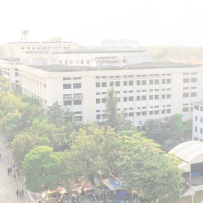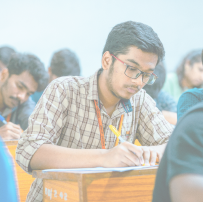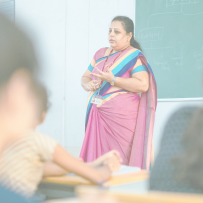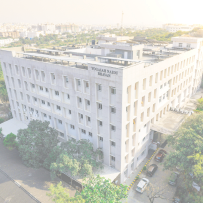
About Dr. Sujith Koonan
Sujith joined NLUO in 2022. Prior to that, he taught at Faculty of Law, University of Delhi and has been a visiting faculty at different institutions including Indian Society of International Law, National Law University Delhi, SOAS-University of London, Tata Institute of Social Sciences and Shiv Nadar University. He also worked with research organisations and think tanks, namely International Environmental Law Research Centre, Geneva, Environmental Law Research Society, New Delhi and Centre for Policy Research, New Delhi. He has the experience of being part of research projects on legal aspects of water, sanitation and climate change. He has been a part of different expert groups constituted by the central government and state governments on water law, namely, a member of the Working Group on Water Governance constituted by the Planning Commission of India during the 12th Five Year Plan and a member of an expert group constituted by the Karnataka Jnana Aayoga, Government of Karnataka for preparing a comprehensive state water policy. He is an Editorial Board member of the Law, Environment and Development Journal (LEAD).
Research Interests
- Environmental law, water and sanitation, public international law, social movements, human rights
Subjects Taught
- International and national environmental law, public international law, law of sea, water law, international organisations
Qualifications
- Ph.D. (SOAS-University of London, 2017)
- M.Phil. (JNU, 2009)
- LLM (CUSAT, 2004)
- LLB (Kerala, 2002)
Journal Articles
-
‘The State, State Practice and International Law: A Critical Examination’, (2022) 3 TWAIL Review 204–222 (with H. Jamil)
-
‘Environmental Rule of Law in India: A Transformative Principle or Old Wine in a New Bottle?’ 13(1) Journal of Indian Law and Society 133-145 (2022). (with H. Ahlawat)
- ‘Manual Scavenging in India: State Apathy, Non-implementation of Laws and Resistance by the Community’, 5(2) Indian Law Review 149-165 (2021).
- ‘Water Security and International Law’, 17 American Review of Law and Social Science 261-76 (2021). (with P. Cullet and L. Bhullar)
- ‘Polluter Pays Principle in India: Assessing Conceptual Boundaries and Implementation Issues’, 7(2) RGNUL Student Research Review 33-50 (2021). (with H Singhal).
- ‘Sanitation Interventions in India: Gender Myopia and Implications for Gender Equality’, 26(1-2) Indian Journal of Gender Studies 40-58 (2019)
- ‘Regulating the Interactions between Climate Change and Groundwater: Lessons from India’, 42(6) Water International 646-662 (2017) (with P. Cullet and L. Bhullar).
- ‘Revamping the Groundwater Legal Regime in India: Towards Ensuring Equity and Sustainability’, 12(2) Socio-Legal Review 45-73 (2016).
- ‘Inter-sectoral Water Allocation and Conflicts: Perspectives from Rajasthan’, 50/34 Economic and Political Weekly 61-9 (2015) (with P. Cullet and L. Bhullar).
- ‘Farmers’ Rights in India: Assessing Conceptual and Implementation Issues’, 4(1) Dehradun Law Review 29-53 (2012).
- ‘Delhi Water Supply Reforms: Public Private Partnerships or Privatisation?’, 47/17 Economic and Political Weekly 32 (2012) (with P. Sampat).
- ‘Constitutionality of the Plachimada Tribunal Bill, 2011: An Assessment’, 7/2 Law, Environment and Development Journal 151 (2011).
- ‘Liberalisation of Water Services: A Critical Legal Analysis’, 32 Cochin University Law Review 1 (2008).
- ‘State Compensation for Human Rights Violations: Unveiling the Trajectory and Scope’, 28-29 Delhi Law Review 105 (2006-07).
Book Chapters
- ‘Social Movements and Resistance to Elitism of Groundwater Law: Lessons from the Plachimada Dispute’ in SA Khan et al (eds), Groundwater Law and Management in India From an Elitist to an Egalitarian Paradigm (Springer, 2021), pp. 61-75.
- ‘Assessing the Realization of the Right to Sanitation in Rural Areas’, in P. Cullet et al (eds), The Right to Sanitation in India—Critical Perspectives (Oxford University Press, 2019), pp 143-70.
- ‘Sanitation, Gender Inequality and Implications for Rights’, in The Right to Sanitation in India—Critical Perspectives (Oxford University Press, 2019), pp 380-401. (with L. Bhullar)
- ‘Right to Sanitation in India: Nature and Scope’, in K.J. Joy and Sarita Bhagat (eds), Right to Sanitation in India: Nature, Scope and Voices from the Margins (Pune: Forum for Policy Dialogue on Water Conflicts in India, 2016), pp. 1-15.
- ‘Competing Uses, Users and Legal Responses: The Case of Plachimada and Rajsamand Lake’, in K. J. Joy et al (eds), Conflicts around Domestic Water and Sanitation in India: Cases, Issues and Prospects (Pune: SOPPECOM, 2014), pp. 19-34.
- ‘Groundwater: Legal Aspects of the Plachimada Dispute’, in Cullet et al. eds., Water Governance in Motion: Towards Socially and Environmentally Sustainable Water Laws (New Delhi: Cambridge University Press, 2010), p. 159.
- ‘Legal Regime Governing Groundwater’, in Cullet et al eds., Water Law for the 21st Century: National and International Aspects of Water Law Reforms in India (Abington: Routledge, 2010), p. 182.
- ‘Water, Health and Water Quality Regulation’, in Cullet et al eds., Water Law for the 21st Century: National and International Aspects of Water Law Reforms in India (Abington: Routledge, 2010), p. 287. (with A.H. Khan)
Edited Volumes
- Research Handbook on Law, Environment and the Global South (Edward Elgar, 2019) (with P. Cullet).
- The Right to Sanitation in India—Critical Perspectives (Oxford University Press, 2019) (with P. Cullet & L. Bhullar).
- Water Law in India – An Introduction to Legal Instruments (New Delhi: Oxford University Press, 2nd 2017) (with P. Cullet).
Others
- Vizag Gas Leak Incident: A Case For Absolute Liability?, LIVELAW, 14 may 2020. (with H Singhal)
- ‘Making India Open Defecation Free at the Cost of Gender Equality, IAPSDIALOGUE, 3 May 2017.
- ‘Groundwater Legal Regime in India: Towards a Paradigm Shift’, GLOBAL WATER FORUM, 12 December 2016.
- ‘A Lesser Fundamental Right to Water’, THE STATESMAN, 05 March 2015, p. 16.
- ‘Swachchh Bharat – Beyond Charity and Symbolism to Legal Rights and Duties’, KAFILA, 12 January 2015.
- ‘Plachimada: A Long Wait for Justice’, THE STATESMAN, 18 December 2014, p. 16.
- India’s Sui Generis System of Plant Variety Protection (Geneva: Quaker United Nations Office, 2014).
Conferences
No Data
Member, Research Team (2018-)
- Project on ‘Food security and the governance of local knowledge in India and Indonesia’
- Funder: Australian Research Council
Co-investigator (2017-18)
- Project on legal and institutional framework relating to faecal sludge and septage management in Odisha, Rajathan and Uttarakhand
- Funder—National Institute of Urban Affairs
Sole investigator (2017-2018)
- Project on Water ATMs in India—Sustainability Impact Assessment
- Funder—Global Greengrants Fund
Co-investigator (2013-2017)
- Project on ‘the Human Right to Sanitation in India, with a focus on Kerala, Rajasthan and Uttar Pradesh’
- Funder—Water Supply & Sanitation Collaborative Council
Co-investigator (2015-2016)
- Preparation of Comprehensive Water Law (Review of Existing Water Bills and Drafting of New Bills on Water Resources) for the State of Rajasthan
- Funder—Government of Rajasthan
Consultancy (2014)
- Project on ‘Sui Generis System of Plant Variety Protection in India’
- Funder—Quaker United Nations Office, Geneva
Consultancy (2013)
- Project on ‘Conflicts Around Water Use in Rainfed Agriculture: Addressing the Cross-Sectoral Dimensions’
- Funder—IDRC
Consultant (2012):
- Study on ‘Legal and Policy Framework for Water Management and Use in Pune (Maharashtra), Faridabad (Haryana) and Jaipur (Rajasthan)’
- Funder—USAID and TCG International, LLC.
Co-investigator (2009-2012):
- Project on ‘Water Law Reforms in India—Further Understanding of Ongoing Reforms and Capacity Building’
- Funder—Arghyam
Others
No Data





